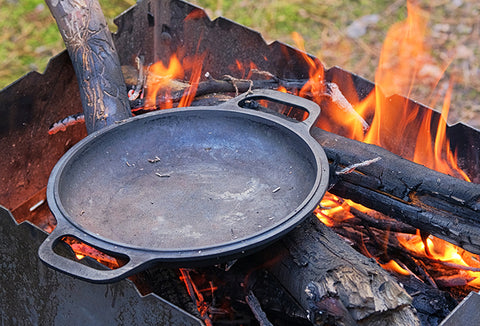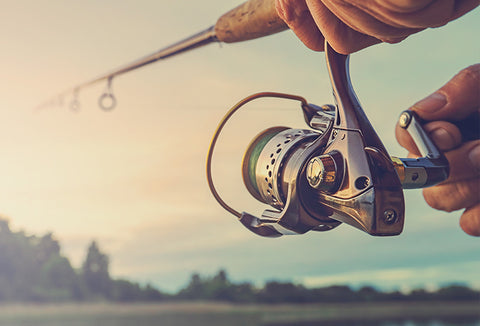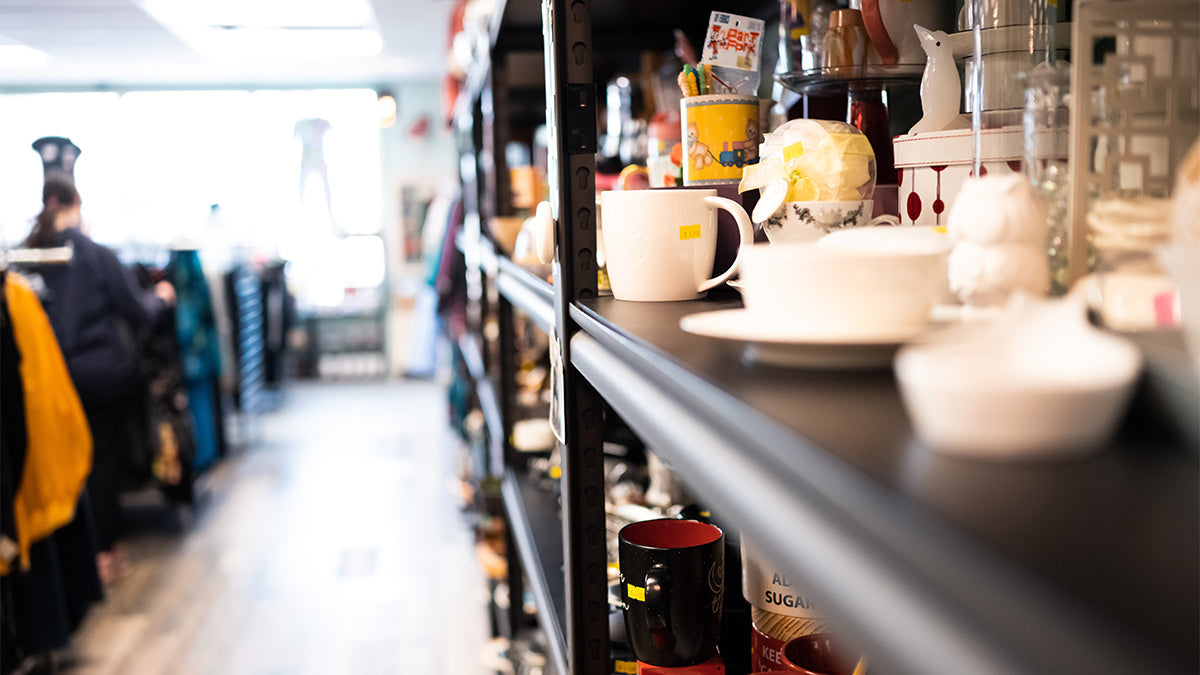When most people spring clean, they aren’t thinking about what they may need if the grid goes down or they have to bug out. Their main goal is clearing out clutter.
But as the saying goes, “One man’s trash is another man’s treasure.”
People tend to donate survival items to thrift stores or sell them at yard sales. Which means you can get really lucky this time of year if you go thrifting with survival in mind!
Instead of buying everything brand new, head to local consignment shops, yard sales, flea markets, and thrift stores to fill in the gaps. Embrace the “reduce, reuse, recycle” mantra.
The key is to plan ahead, know exactly what you need, and how much you’re willing to spend.
Here are 15 preparedness items everyone should have:

1. Cast Iron Skillets
A genuine cast iron skillet should last a lifetime, which is why you may want to look for these at estate sales.
With a cast iron skillet, you can cook indoors or outdoors over a fire. (It makes a pretty solid weapon, too!)
2. Tools
Quality tools, especially cast iron tools, are built to last.
When a family member dies, people often don’t know what to do with their tools because they already have their own. As a result, tools find their way to estate sales, thrift stores, and flea markets all the time.
3. Camping Gear
In the spirit of “reduce, reuse, recycle,” keep an eye out for secondhand camping gear.
People often upgrade their camping gear, getting bigger tents and fancier gear. Take advantage of their upgrades by getting their basics—such as tents and sleeping bags—at cheap prices.

4. How-To Books
When the grid goes down, so does the internet. Without it, you won’t be able to rely on it for survival information.
Be on the lookout for how-to or DIY books. The key here is to find books that can help you be more self-reliant. Look for books and guides on topics such as gardening, survival skills, and basic carpentry.
5. Manual Appliances
As much as we love our high-tech appliances, nothing beats manual can openers and manual egg beaters when the power goes out.
6. Battery-Operated Appliances
Similar to manual appliances, most people use appliances that must be plugged in to work. They would rather plug something in than have to replace batteries.
But again, when the power goes out, they will wish they had held on to that battery-operated cordless mixer. Keep them for backup, just in case!
[Related Read: Power Failure Preparedness Guide]

7. Knives
A good multipurpose tool, like a Swiss Army knife, is a must-have. You can often find quality knives at secondhand stores and pawn shops.
8. Winter Gear
Spring cleaning is when the winter gear we have outgrown, no longer use, or simply no longer want gets donated. But everyone should have some basic winter gear, such as coats, gloves, and hats, just in case of an emergency.
If you don’t have any, hit the thrift store and garage sale circuit and stock up now.
9. Vehicle Kits
Every vehicle should have a first aid kit and a vehicle emergency kit in the trunk.
While we recommend buying first aid gear new, vehicle emergency kits with items such as reflective triangles, tire pressure gauges, and bungee cords can be used multiple times. You don't need to buy those parts new.
[Related Read: Car Preparedness and Safety]

10. Fishing Equipment
Whenever you see fishing rods, fishing line, and hooks being given away or on sale for cheap, grab them.
If getting food becomes difficult in a disaster, knowing how to fish and owning fishing equipment may be the difference between eating and starving. The same is true for hunting gear.
11. Canning Supplies
Canning food is on the rise as more people are growing and preserving their own food.
Look for secondhand canning supplies at yard sales before you buy new. Glass jars can be tracked down pretty easily at secondhand stores! However, it's important to note that you cannot reuse metal canning lids.
12. Cookbooks
Today, it’s fairly easy to find recipes online. But what if the grid goes down?
Would you know how to bake bread from scratch? Would you know which ingredients to substitute when the supply chain halts? Do you know how to cook the vegetables you grow in more than one way?
Get a few helpful cookbooks to keep on hand just in case. Food boredom can be exhausting in emergencies. You'll want to have plenty of recipes ready to put to use!

13. Gardening Supplies
One of the reasons people garden is to save money by growing their own food. But it defeats the purpose if you overspend on gardening tools.
Gardening tools can be reused as long as they are not broken or rusted. In addition to gardening tools, look for seed libraries where you can find seeds for free!
14. Scouting Gear
If your kids are Scouts, don’t get rid of their scout gear! Much of what they learn to use in Scouts will prove helpful in an emergency.
For example, my son has a flint rod he used when he was learning how to start fires. He also has guides about starting and maintaining fires. Those would prove extremely useful in an emergency situation!
15. Sewing and Knitting Tools
Some hobbies are extremely useful in emergencies. For example, sewing and knitting will not only keep your hands and mind busy, but they will also provide the means for keeping your family warm as you mend and make clothes and blankets.
You may even find yourself needing to sew a patch in a tent, or using a knitting needle as a weapon!
Before you toss anything, ask yourself if you can reuse it in a disaster situation. If so, move it to your preparedness closet.
The old backpack may be just right for your go-bag. The book about natural medicine may one day be a lifesaver.
Keep planning ahead and getting prepared!


1 comment
Gregory Chitwood
Lots of good ideas 1